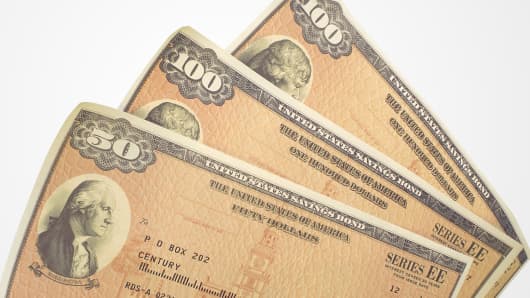If you own a bond fund, dividend paying stock or ETF — and that seems to be everybody these days, especially those of us who are yield-hungry and aging — just remember: When rates go up, prices go down.
It's the see-saw effect that is second-nature to sophisticated investors, but often overlooked and likely not understood by everybody else.
Here are three things to consider — and it doesn't matter if these are in your IRA, 401(k) or elsewhere:
First, bond mutual funds aren't the same as owning a bond. There is no end date; they don't mature. That means if rates rise, the price of the fund (your underlying investment) will fall. Depending on when you bought the fund, you could lose money. This excellent piece by Morningstar details a stress test than can indicate how much you might lose.
Second, according to Morningstar, an astounding amount of cash has been flowing into emerging-market and junk-bond funds over the past year. Here's the tricky part: The emerging market funds are likely to be less affected by the impact of rising rates in the U.S., but as Morningstar's Christine Benz points out, they tend to be more vulnerable to the overall stock market. In 2008, for example, they got slaughtered. (Read More: How the Fed Is Pushing Investors into Junk Bonds .)



